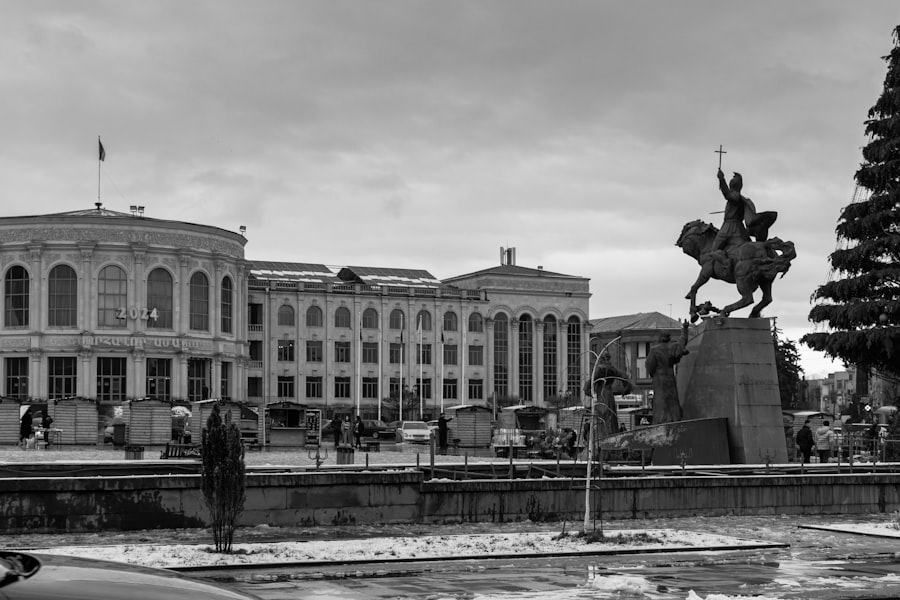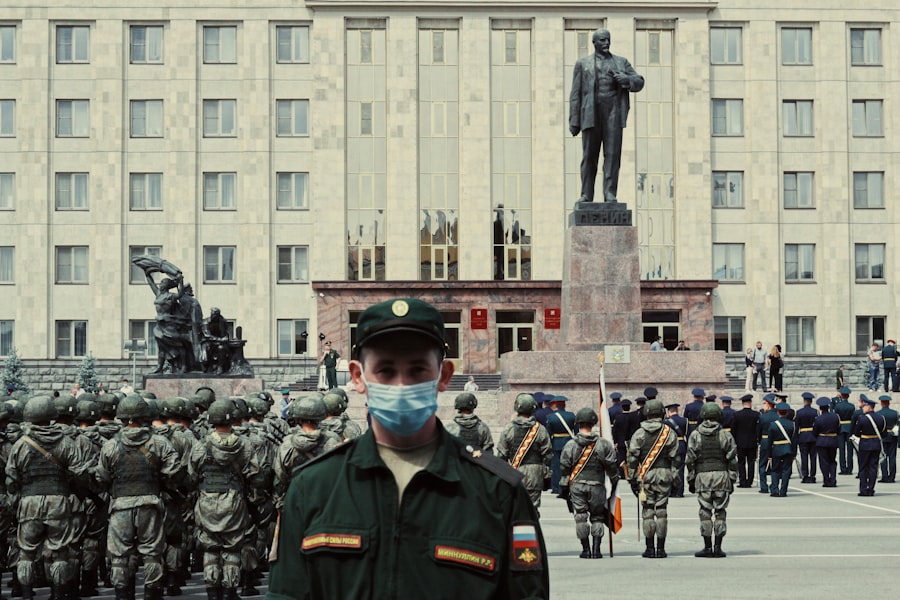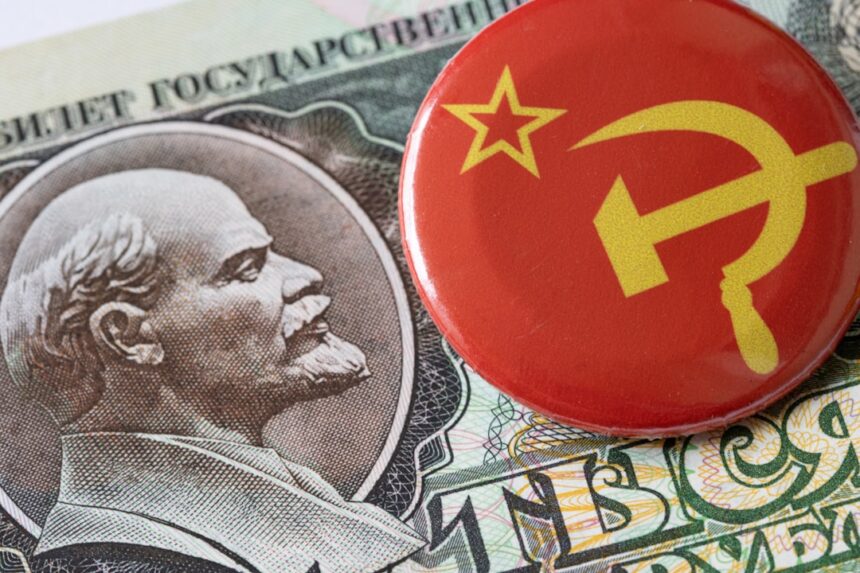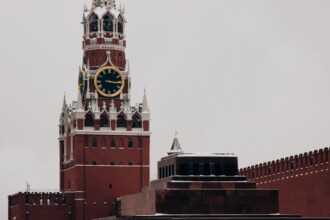Military corruption has long been a pervasive issue within the Russian and Soviet armed forces, manifesting in various forms and impacting the integrity of military operations. This corruption has not only undermined the effectiveness of the military but has also posed significant threats to national security. The intertwining of military and political interests has created an environment where corruption flourishes, leading to a culture of impunity that has persisted through different regimes.
Understanding the roots and ramifications of military corruption in this context is essential for grasping the broader implications for Russia’s defense capabilities and international standing. The legacy of military corruption in Russia and the Soviet Union is complex, shaped by historical events, political dynamics, and economic conditions. As the military has often been viewed as a pillar of national pride and security, the prevalence of corruption within its ranks raises critical questions about accountability and governance.
This article aims to explore the historical context, impact, methods, and case studies of military corruption, as well as the political and economic factors that contribute to this ongoing issue. By examining these elements, one can gain insight into the challenges faced by the Russian military and the potential paths forward in addressing corruption.
Key Takeaways
- Military corruption has been a persistent issue in both Russia and the Soviet Union, with deep-rooted historical and systemic factors contributing to its prevalence.
- Military corruption has had a significant impact on national security, leading to weakened defense capabilities and compromised military readiness.
- Various methods and schemes, such as embezzlement, kickbacks, and nepotism, have been employed to facilitate military corruption in Russia and the Soviet Union.
- Notorious military corruption scandals, such as the Oboronservis case and the Serdyukov Affair, have highlighted the extent of corruption within the Russian armed forces.
- Political and economic factors play a crucial role in perpetuating military corruption, and efforts to combat it have been met with limited success due to entrenched interests and lack of transparency.
Historical Context of Military Corruption in Russia and the Soviet Union
The roots of military corruption in Russia can be traced back to the Tsarist era, where patronage and favoritism were common practices within the military hierarchy. The lack of accountability and transparency allowed for widespread abuse of power, setting a precedent that would carry into the Soviet period. During the Soviet Union’s existence, particularly under Joseph Stalin’s regime, corruption became institutionalized as loyalty to the party often superseded merit-based promotions.
This environment fostered a culture where bribery and nepotism were not only tolerated but expected. As the Soviet Union expanded its military capabilities during the Cold War, the demand for resources and funding intensified. This led to increased opportunities for corrupt practices, as officials sought to divert funds for personal gain or to support illicit activities.
The military-industrial complex became a breeding ground for corruption, with contracts often awarded based on connections rather than competence. The collapse of the Soviet Union in 1991 did not eradicate these entrenched practices; instead, it transformed them as new actors emerged in a rapidly changing political landscape.
Impact of Military Corruption on National Security

The ramifications of military corruption extend far beyond financial losses; they pose direct threats to national security. Corruption undermines operational readiness by diverting resources away from essential training and maintenance programs. When funds intended for equipment upgrades or soldier welfare are siphoned off through corrupt practices, the military’s effectiveness is compromised.
This deterioration can lead to a lack of preparedness in times of crisis, ultimately endangering national interests. Moreover, military corruption can erode public trust in government institutions. When citizens perceive that their military leaders are engaged in corrupt activities, it diminishes confidence in the state’s ability to protect them.
This disillusionment can have broader implications for social stability and national unity, as citizens may question the legitimacy of their leaders and the effectiveness of their armed forces. In an era where geopolitical tensions are high, maintaining a strong and trustworthy military is crucial for any nation’s security.
Methods and Schemes of Military Corruption in Russia and the Soviet Union
| Method/Scheme | Description |
|---|---|
| Kickbacks | Illegal payments made to military officials in exchange for awarding contracts or other favors. |
| Embezzlement | Stealing or misappropriating funds or resources meant for military purposes. |
| Ghost soldiers | Creating fake or non-existent soldiers on the payroll in order to pocket their salaries. |
| Black market dealings | Illegally selling military equipment, weapons, or supplies for personal gain. |
| Corrupt procurement practices | Rigging procurement processes to benefit certain individuals or companies at the expense of the military. |
Military corruption in Russia and the Soviet Union has manifested through various methods and schemes that exploit systemic weaknesses within the armed forces. One prevalent method involves embezzlement of funds allocated for procurement and maintenance. Officials may inflate costs or create fictitious contracts to siphon off money intended for purchasing equipment or supplies.
This practice not only results in financial losses but also leads to substandard equipment being supplied to troops. Another common scheme involves bribery and kickbacks associated with defense contracts. Companies seeking lucrative government contracts may offer bribes to military officials to secure favorable terms or to overlook deficiencies in their products.
This creates a cycle where quality is compromised for profit, ultimately affecting the operational capabilities of the military. Additionally, nepotism plays a significant role in perpetuating corruption, as positions within the military are often filled based on personal connections rather than qualifications, further entrenching inefficiency and misconduct.
Case Studies of Notorious Military Corruption Scandals
Several high-profile cases have highlighted the extent of military corruption within Russia and the Soviet Union, revealing systemic issues that have persisted over decades.
Investigations revealed that millions of dollars had been embezzled through a network of corrupt officials and contractors, leading to public outrage and calls for accountability.
Another infamous case occurred in 2010 when a high-ranking officer was arrested for accepting bribes related to defense contracts worth billions of rubles. This scandal exposed not only individual wrongdoing but also a broader culture of corruption within the military procurement system. The fallout from such scandals often leads to temporary reforms or investigations; however, without systemic changes, these efforts frequently fail to address the root causes of corruption.
Role of Political and Economic Factors in Military Corruption

Political dynamics play a crucial role in facilitating or combating military corruption in Russia and the Soviet Union. The intertwining of military interests with political power creates an environment where accountability is often sacrificed for loyalty. Leaders may turn a blind eye to corrupt practices among military officials if it serves their political agenda or maintains stability within their ranks.
This complicity can perpetuate a cycle where corruption becomes normalized within military culture. Economic factors also contribute significantly to military corruption. Budget constraints and economic instability can create pressures that lead officials to engage in corrupt practices as a means of survival or profit maximization.
In times of economic hardship, such as during the transition from communism to capitalism in the 1990s, opportunities for corruption proliferated as individuals sought alternative means to secure their livelihoods. The lack of robust oversight mechanisms further exacerbates these issues, allowing corrupt practices to flourish unchecked.
Efforts to Combat Military Corruption in Russia and the Soviet Union
In response to growing concerns about military corruption, various efforts have been made to address this pervasive issue within Russia and its predecessor state. Initiatives aimed at increasing transparency and accountability have been introduced at different levels of government. For instance, reforms have been proposed to enhance oversight mechanisms within defense procurement processes, aiming to reduce opportunities for embezzlement and bribery.
However, these efforts often face significant challenges due to entrenched interests within the military establishment. Resistance from powerful figures who benefit from corrupt practices can undermine reform initiatives before they gain traction. Additionally, public awareness campaigns aimed at educating citizens about corruption have had mixed results; while they may raise awareness, they often lack the necessary enforcement mechanisms to effect real change.
Influence of Military Corruption on Foreign Policy and International Relations
Military corruption does not exist in a vacuum; it has far-reaching implications for a nation’s foreign policy and international relations. In Russia’s case, widespread corruption within its armed forces can hinder its ability to project power effectively on the global stage. When military capabilities are compromised due to corrupt practices, it affects strategic decision-making and can lead to miscalculations in international engagements.
Furthermore, allegations of corruption can damage a country’s reputation abroad, impacting diplomatic relations with other nations. Countries may be hesitant to engage with a nation perceived as corrupt or unreliable, which can limit opportunities for cooperation on security matters or joint military exercises. As global security dynamics evolve, addressing military corruption becomes increasingly vital for maintaining credibility and influence in international affairs.
Implications of Military Corruption for the Russian and Soviet Armed Forces
The implications of military corruption extend deeply into the operational effectiveness of both Russian and Soviet armed forces. Corruption undermines morale among troops who may feel disillusioned by their leaders’ actions or frustrated by inadequate resources due to misappropriated funds.
Moreover, as corrupt practices persist within military ranks, they can create an environment where innovation is stifled. When promotions are based on connections rather than merit, talented individuals may be overlooked in favor of those who engage in corrupt behavior. This stagnation can hinder advancements in technology and strategy, leaving armed forces ill-equipped to adapt to modern warfare challenges.
Comparison of Military Corruption in Russia and the Soviet Union
While military corruption has been a consistent issue throughout Russian history, there are notable differences between its manifestations during the Soviet era compared to contemporary times. In the Soviet Union, corruption was often state-sanctioned as part of a broader system that prioritized loyalty over accountability. The centralized nature of governance allowed for widespread collusion among officials at various levels.
In contrast, post-Soviet Russia has seen a diversification of corrupt practices influenced by market dynamics and globalization. The rise of private defense contractors has introduced new avenues for corruption that were less prevalent during the Soviet period. Additionally, while some aspects of corruption remain similar—such as bribery and embezzlement—the context in which they occur has evolved significantly due to changes in political structure and economic conditions.
Future Prospects for Addressing Military Corruption in Russia
Addressing military corruption in Russia remains a formidable challenge that requires comprehensive reforms at multiple levels. While there have been efforts aimed at increasing transparency and accountability within defense procurement processes, sustained political will is essential for these initiatives to succeed. Without meaningful changes in governance structures that prioritize integrity over loyalty, corruption is likely to persist as a significant issue within the armed forces.
Looking ahead, fostering a culture of accountability will be crucial for rebuilding trust among both military personnel and civilians alike. Engaging civil society in monitoring defense spending and advocating for reforms can help create pressure for change from outside traditional power structures. Ultimately, addressing military corruption is not only vital for enhancing national security but also for restoring public confidence in state institutions—a necessary step toward ensuring a stable future for Russia’s armed forces.
In examining the intricate dynamics of military corruption within Russian and Soviet contexts, it is insightful to consider broader discussions on military ethics and governance. An article that complements this topic is available on the website “In The War Room,” which delves into various aspects of military operations and ethical considerations. For a deeper understanding, you can explore related discussions by visiting this article on their platform. This resource provides a comprehensive look at how military corruption has evolved and the implications it holds for contemporary military practices.
WATCH NOW! 🎖️ Plot Twist: Russia’s Military Is Being Eaten Alive By Its Own Corruption
FAQs
What is the difference between Russian and Soviet military corruption?
The main difference between Russian and Soviet military corruption lies in the time period and the political and social context in which it occurred. Soviet military corruption primarily took place during the existence of the Soviet Union, while Russian military corruption refers to the period after the dissolution of the Soviet Union in 1991.
What are the common forms of military corruption in Russia and the Soviet Union?
Common forms of military corruption in both Russia and the Soviet Union include bribery, embezzlement, kickbacks, nepotism, and the misuse of military resources for personal gain. These corrupt practices can occur in various aspects of the military, such as procurement, promotions, and the allocation of resources.
How does military corruption impact national security in Russia and the Soviet Union?
Military corruption can have detrimental effects on national security in both Russia and the Soviet Union. It can lead to a weakening of the military’s capabilities, compromised defense systems, and a lack of trust in the armed forces. Additionally, corruption can undermine the morale and discipline of military personnel, ultimately impacting the country’s ability to defend itself.
What measures have been taken to address military corruption in Russia and the Soviet Union?
Both Russia and the Soviet Union have implemented various measures to address military corruption, including anti-corruption laws, oversight mechanisms, and efforts to promote transparency and accountability within the military. However, the effectiveness of these measures has been a subject of debate, and corruption continues to be a significant issue in the military of both countries.




